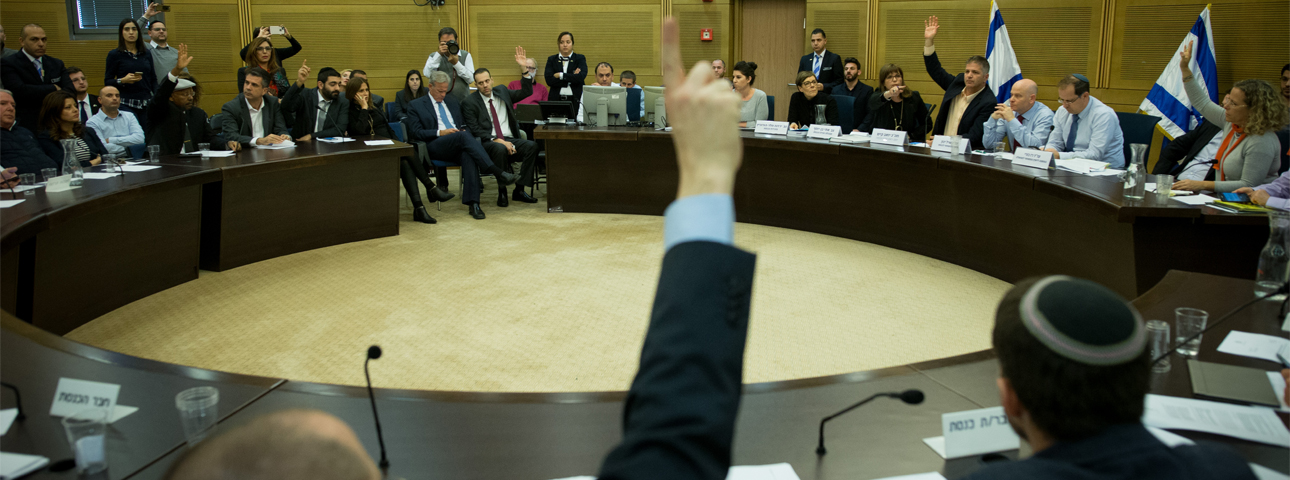Don’t Manage a Crisis under Threat of Investigation
Calls for the establishment of a state commission of inquiry the day after the corona, in the midst of the crisis, can lead decision-makers to make decisions based on wrong considerations.

Flash 90
Israel in the midst of a crisis –unprecedented in its scale. Human life is in danger, and the economy faces huge challenges. All branches of government are focused on dealing with a first-ever situation. All this does not prevent some journalists and public figures from calling for the establishment of a state commission of inquiry the day after the corona. In addition to the demoralization which this creates among the public, such a call in the midst of the crisis, can lead decision-makers at all levels to make decisions based on wrong considerations, which will endanger people’s lives, or deal a blow to the economy, or both.
When a government functions poorly during a state of crisis and when it is also guilty of long-term negligence on highly significant matters, this requires close examination and scrutiny of the situation. To this end, Israeli law grants the government (and in unique cases- the Knesset Audit Committee) the power to establish a state investigative committee. These committees are invested with extensive powers, for both investigating and providing recommendations on both the individual and system-wide levels. These committees are an important and powerful tool for learning lessons and ensuring a more efficient government system.
But investigative committees also involve risk. Resorting to their frequent use may create a situation in which a government does not conduct itself in an unbiased way, but rather –makes decisions with an eye to the next investigative commission.
Instead of solving crises and managing risks using their best judgment when making decisions - leaders and senior officials may be tempted to make decisions based on their anticipation of the next investigative committee, thus saving themselves from any potentially negative recommendations directed at them personally.
This is all the more the case when it comes to the kind of crisis with which we are currently grappling. Like the rest of the world, Israel has never experienced a crisis of this type throughout the years of its existence. This is a multi-dimensional crisis which impacts all areas of life, severely disrupts the daily routine, and most importantly – threatens the lives of tens of thousands of Israelis. Although Israel is capable of managing emergency situations and crises and is experienced in doing so, there has never been a health crisis resembling the Corona. Although government offices have done some work in the past, on how to deal with a possible epidemic, the current crisis like any war is first and foremost characterized by uncertainly and a deep sense of precariousness.
The Corona crisis has no simple solution. "In order to deal with the epidemic in the most effective way, government leadership, from the Prime Minister to ministers, to hospital administrators, and others, must constantly make tough decisions, amidst uncertainty and constantly changing situations. In the “fog of war”, the country’s leadership must navigate the desire to maintain routine and minimize the damage to the economy as much as possible, while at the same time—save lives. Any reasonable decision made in such a situation can turn out to be right or wrong, but one can only know which -- after the fact, when the storm dies down.
Even in the most optimistic scenario, in Israel as elsewhere, unfortunately, people will lose their lives, and the Israeli economy will be dealt a severe blow. The campaign to establish a state commission of inquiry after the end of the crisis could intensify the damage and even come at the cost of human lives. If government leadership and decision-makers act with the shadow of an expected commission of inquiry hovering in the background, their decisions may be biased, thus intensifying the damage that was already expected. At this point, we cannot negate the possibility of establishing an investigative committee, and in the future—this may turn out to be the right course of action, but the current campaign to establish such a committee, at a time when—both the numbers of hospitalized corona patients and the number of the unemployed are on the rise, is in and of itself—serious and harmful.
The article was published in Israel Hayom.
